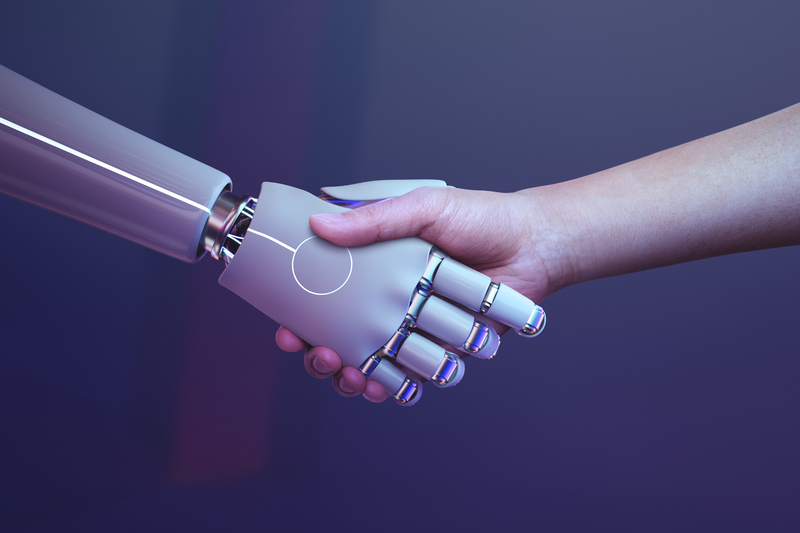Artificial intelligence (AI) has started penetrating education infrastructure in schools, but should we be worried about it?
Like it or not – and many of us do not, it seems – artificial intelligence, or AI, is here to stay.
Of course, AI has been around for decades in one form or another but it is only within the last two to three years that it has become such a hot topic of discussion.
Everywhere we look, AI-generated effects and memes are apparent, from digitally inserting long-dead musicians into music videos so that surviving members of decades-old groups can stay relevant (Paul McCartney, we’re looking at you here) to the popularisation of ‘fake news’ and gossip-mongering. AI has its claws in all aspects and areas of society, it seems.
And yet, if used positively, AI can be such a godsend. This is not only in terms of the time it is likely to save us doing menial tasks such as crafting emails but also in the avenues of facilitation in learning, process development, and research.
Look on the website of just about any school nowadays and you will see (sometimes exaggerated and grandiose) claims that the school and its learning processes are ‘at the very cutting edge of technology’.
Terms such as Flipped and Blended Learning are commonplace within the teaching profession, but what does it all mean? How can we be sure that these elements are indeed being incorporated into teaching and, more importantly, that students are benefiting from them and are not abusing them or – even worse – being abused by them?
The Role of AI in Education
In the education field, many AI-powered platforms offer personalised learning, tutoring, as well as support, and through these, students can be encouraged to better understand complex topics. These can help students to achieve a greater grasp on what they are learning from their teachers in as much as they can personalise their questions when asking for clarification. AI can also be used to create examples and to give feedback on work produced by the students.
In other words, AI is capable of undertaking many of the tasks and responsibilities of a bona-fide human teacher.
The problems arise when the issue of academic integrity is considered. Teachers need to be sure that work produced and presented by students is their own, and that any ‘borrowing’ of text or information is properly and accurately cited. In many ways, it is relatively easy to see when a student’s work has not benefited from the use of AI — because it will ordinarily contain a certain number of syntax, vocabulary, or grammatical mistakes. However, if it is ‘as clean as a whistle’, then doubts will arise.
Teachers can use plagiarism-check tools and apps to investigate the honesty of the student’s work, but even then, problems can still arise. Should a teacher inadvertently unfairly accuse a student of plagiarism or undue reliance on AI to complete tasks, students and parents will, naturally, be aggrieved.
Therefore, clear rules and guidelines must be put in place that all parties are aware of and buy into. Therefore, the implications of AI for students can be summarised as follows:
THE UPSIDE – Enhanced Learning Opportunities:
- AI can help students learn more efficiently by providing immediate feedback and tailored learning experiences;
- AI plays an immense role in making education more accessible, especially for students with learning difficulties.
THE DOWNSIDE – Dependency Risks:
- There lies the risk of students becoming overly reliant on AI tools, which could hinder their critical thinking and problem-solving skills;
- The importance of balancing AI use with traditional learning methods to develop well-rounded skills should not be underestimated. Although AI will continue to become more and more important and widely used, traditional learning methods still need to be taught.
This, hence, brings us to the role of parents.
Although parents are invariably of older generations than their children, they need to ensure they possess at least a working knowledge of AI and its variables. It is more important than ever that parents take an interest in their children’s education and, in particular, their study habits.
As mentioned before, teachers should work together with parents from a clearly defined Code of Conduct or Student Handbook, and when homework is assigned by a teacher digitally, parents should have access to it. The role of parents could, thus, be summarised as follows:
- There is a need for parents to understand the AI tools that their children are using and how they impact learning;
- Parents must encourage a healthy balance between AI-assisted learning and independent study;
- Parents should collaborate with teachers to establish strategies for monitoring AI use without stifling students’ exploration of technology.
In conclusion, we can see that there are many benefits of AI, and these outweigh the drawbacks. Through working together with all stakeholders, the advent of AI is ushering in an exciting new gateway to the learning process. Although it must be carefully monitored, it will be fascinating to see in which direction AI will take us moving forward.




